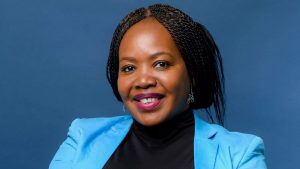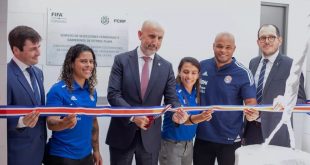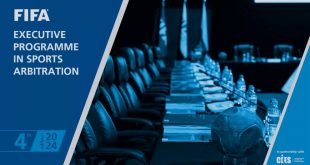 “After the course, we set up a WhatsApp Group and called ourselves the Thunder Sisters. We created that little bond and network. When one of us is facing a challenge, we go back to that group and say: ‘Hey guys, I’m having this challenge, how can I go about this? I’m looking for this document, can anybody assist?’ We are in different continents, but through WhatsApp we can have this supportive chat between each other.”
“After the course, we set up a WhatsApp Group and called ourselves the Thunder Sisters. We created that little bond and network. When one of us is facing a challenge, we go back to that group and say: ‘Hey guys, I’m having this challenge, how can I go about this? I’m looking for this document, can anybody assist?’ We are in different continents, but through WhatsApp we can have this supportive chat between each other.”
These positive words were delivered with a smile by Tsholofelo Setlhoko, and they captured just one of many heart-warming moments that the Manager for Women’s Football at the Botswana Football Association (BFA) experienced at the fourth Women in Football Leadership Programme (WFLP), which she attended along with 35 other women from around the world.
“Being invited to the Women in Football Leadership Programme has been of great importance to me as a woman in my country and at the BFA, to further the growth of women in football,” Setlhoko told FIFA.com. “It’s given me an opportunity to grow as a leader. I am feeling more blessed because from the 211 federations, I was one of those selected and am grateful to UEFA and FIFA for the opportunity to be able to assist us and develop us as leaders.”
Prior to the event, Setlhoko did not quite know what to expect, saying: “I thought it was going to be just like any other course where you get trained and come back and can train other people. But when I got to the course, I realized that it was more focused on me as a leader and where I am in terms of my leadership position.”
Along with subjects such as effective communication with employees, the foundations for good leadership and building up trust and credibility, the participants also carried out a personality test, which was “there to help us understand ourselves better as leaders, and to look at ourselves and see how we can be effective in our current roles,” the 40-year-old explained.
“The test looked at emotional reactions, interpersonal patterns, openness to change and work ethics. It helped us to realize our strengths and weaknesses, and how you can turn weaknesses into strengths.”
Setlhoko sees one of her strengths as being her personality, which enables her to be heard in a footballing world that is dominated by men. Since 2019, she has been Manager for Women’s Football in her home country’s national association and boasts plenty of years’ experience in fitness training, coaching and sports management at the BFA and in youth development programmes.
“I had been working with men’s teams before joining the FA. I was a coach before, a physical trainer – even for the premier league teams. I was working for men and it’s easy for me. I know now how to manoeuvre the system and make sure I make an impact. Even if there are challenges or things are pitted against me, I always find a way to deal with problems and how I can solve those. Throughout the course, I learned how to deal with the different personalities of the men I’m working with and to make sure that I’m smart enough to be able to work with them in a certain way and to make an impact in whatever I’m doing.”
Setlhoko certainly has made an impact. When she first took on the role, there were 47 women’s teams in Botswana. By 2022 that figure had risen to 66 playing in the league, and there are currently as many as 132 teams registered. In addition to this, fives centres have been set up specially for girls in Botswana to encourage more of them to play football, and to create the groundwork for a successful future.
“I’m excited about the growth in my country. We’re looking at maybe next year having the first ever first division south and north for the league, so that in 2025 we can have the first premier league for women in Botswana,” Setlhoko said. “It’s baby steps through our strategy and the four pillars that we have. I’m all about changes and making an impact in my country. I love football and I love what I am doing.”
To implement her goals, it is critical for ‘Tsholo’ that the girls have more role models in football, with women in leadership positions playing a decisive role in this. “We need to see them to believe in ourselves and to change that perception and say: ‘girls and women can also play football like boys’. Especially in Africa, the perception is that women are supposed to be in the kitchen and to do other things besides playing football,” she explained, “but you can see now that we’re changing the perception, we’re having more role models for women. We’re having more voices who are standing up for other women, making sure that women’s football is taken seriously and given the same funding.”
This is precisely where the FIFA Women in Football Leadership Programme comes into its own, with its aims of training women, strengthening their position and creating a network for them in football. “It’s a fantastic programme,” she concluded. “You get support and you get to connect with other women. You see how this course makes us connect, open our minds to a lot of things and become aware of different things in our careers.”
 Arunava about Football A look at football & the world through my eyes!
Arunava about Football A look at football & the world through my eyes!



